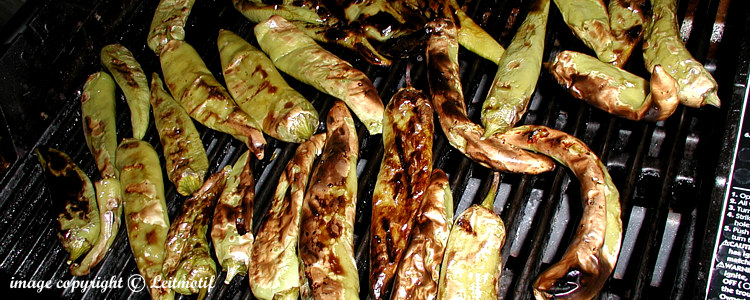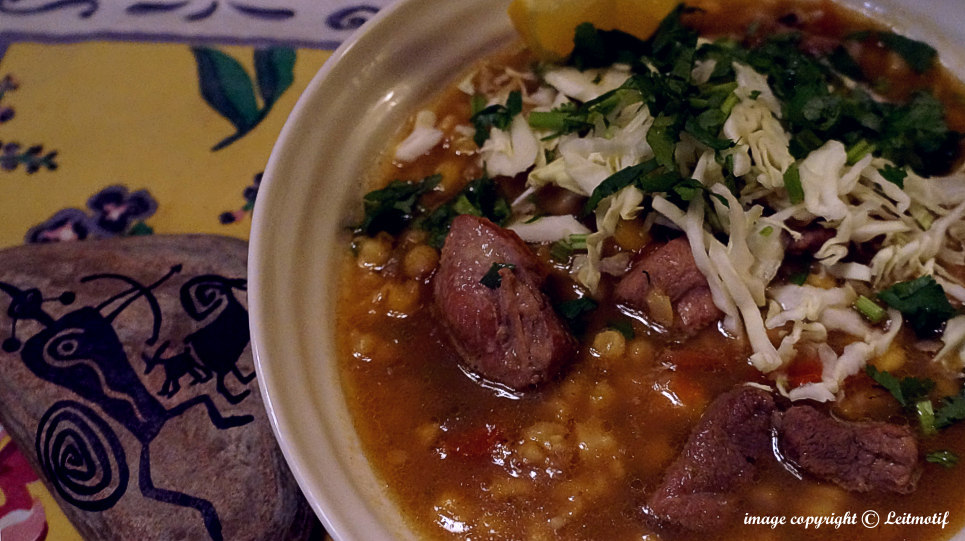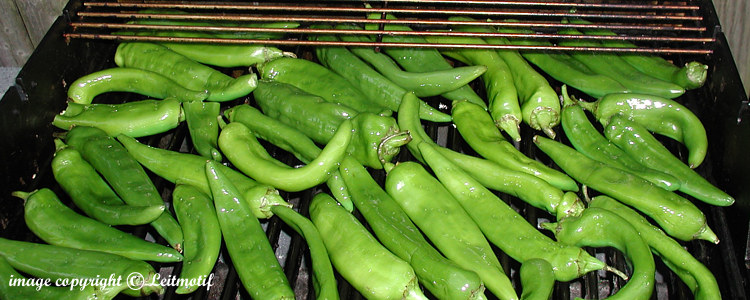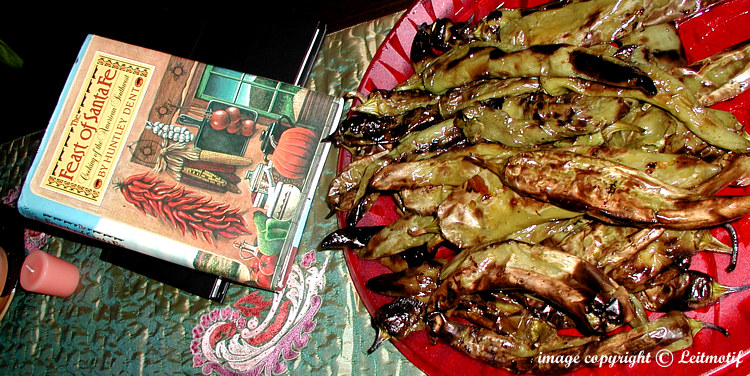It was my first experience cooking hominy at home. I couldn’t find the dry grain at the local Whole Foods store (the store assistant was Mexican and said she made posole as well, but using only the canned version since the grains took forever to cook). I was determined to use the dry grain, and finally found it in the Spanish section in a grocery store. (Hominy is whole kernels of lime-treated maize, and when ground, you get the ‘masa’ for corn tortillas and tamales). To this Mexican stew of hominy and pork (you can use chicken instead) I added Hatch chiles from Hatch, New Mexico. Usually I order these roasted chiles online, but this particular time I was lucky to find them at the local grocer’s, so I roasted them myself at home – all in all a far too lengthy way to make posole, but so much fun! If you can’t get Hatch chiles substitute fresh poblanos that you can smear with oil and roast over the stove or in the oven. But really, it’s not the same thing.

Having washed and dried them, they were smeared with oil and roasted over the grill, turning them over as they began charring
Ingredients
Serves 6
Posole
12 oz dry posole (I used Goya’s ‘golden hominy’)
1 1/2 quarts cold water
2 teaspoons salt
Pork
1 pound boneless pork
3 tablespoons vegetable oil
1 teaspoon kosher salt, to taste
1 large chopped onion
10 cloves minced garlic
1 tablespoon black pepper
1 1/2 cup fire-roasted Hatch green chiles, chopped, to taste
2 large juicy tomatoes
1 tablespoon roasted powdered cumin
1 tablespoon Mexican oregano
2 cups water
32 oz low-sodium chicken broth
Salt and pepper, to taste
Garnish
Lemon or lime wedges, fresh cilantro, sliced or grated daikon radish or red radish, avocados or guacamole, finely sliced cabbage.
As it happens, we watched Chico & Rita over dinner that day – the film has amazing animation and drawings of mesmerizing depth. It’s a romantic plot of sorts, and is loosely based around Bebo Valdes (Cuban pianist who also composed some wonderful music for this film and who also happens to be Chucho Valdez’ father). You’ll encounter Monk, Dizzy, Bird and others along the way.
This is Bud Powell’s ‘Celia’ played by Cuban pianist Rolando Luna.
Posole:
- Rinse and cover posole kernels in water and let soak overnight
- Use a deep pot to cook the kernels along with the water, salt and broth. Add broth, and simmer until kernels are tender, about 1 1/2 hours. The kernels should not be mushy, but tender to the bite
- Trim pork and dice into medium sized pieces
- Heat oil in a large pot. Add the onions and cook until golden brown and soft, then add garlic and cook another minute or so
- Add the pork and fry it until it is lightly browned on the outside. Add some salt
-
Add the cumin and oregano and stir
-
Add chopped tomatoes, chiles, water and broth. Bring to boil and reduce the heat to minimum and cook for about 1 1/2 hours. Add more liquid if necessary. It has to be of soupy consistency
-
When the meat has cooked and is tender, add the cooked posole and let it simmer for another 30 minutes for the posole to soak in the flavors of the gravy and meat
-
Taste and adjust seasoning
- Serve hot garnished with your choice of vegetables and herbs



